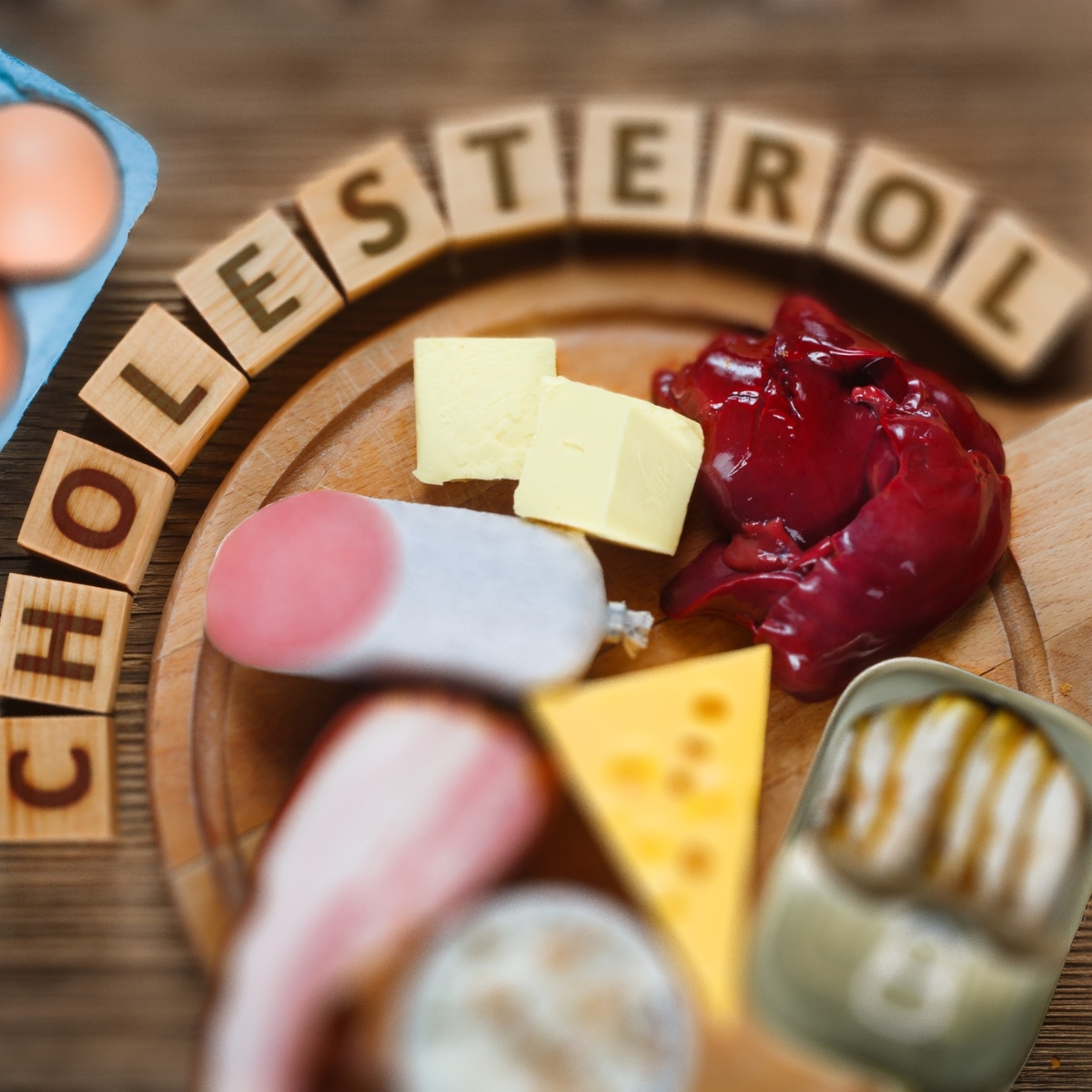You might have heard your doctor talk about cholesterol, and you might have wondered: what is it exactly?
Well, it’s a waxy substance that’s found in all of our cells. It helps to make hormones and vitamins and helps to keep our cells healthy. But, if there’s too much cholesterol in your blood, it can clog your arteries and lead to heart disease.
So, let’s look at everything you need to know about cholesterol.

In this post we'll cover:
What’s the Deal with Cholesterol?
What is Cholesterol?
Cholesterol is like a waxy, fat-like substance that your body makes. It’s kinda like a building block for hormones and digesting fatty foods. Your body makes all the cholesterol it needs, so experts recommend that you don’t eat too much of it.
Where Can I Find Cholesterol?
Cholesterol is found in animal foods like:
- Meat
- Seafood
- Poultry
- Eggs
- Dairy products
What Happens if I Eat Too Much Cholesterol?
If you eat too much cholesterol, it can clog up your arteries and increase your risk of heart disease. So it’s important to keep your cholesterol levels in check.
How Can I Keep My Cholesterol Levels Low?
The best way to keep your cholesterol levels low is to make smart eating choices. Eating healthy foods like fruits, veggies, and whole grains can help you stay away from too much cholesterol.
What You Need to Know About Cholesterol
What is Cholesterol?
Cholesterol is a waxy substance that’s found in your blood. It’s like a double-edged sword: too much of the bad kind (LDL) and not enough of the good kind (HDL) can lead to a buildup of cholesterol in your arteries, which can increase your risk of heart attack and stroke.
What are the Consequences of High Cholesterol?
High cholesterol can lead to a number of serious health issues, including:
- Atherosclerosis: A thick, hard deposit of cholesterol that builds up in the inner walls of your arteries, making them less flexible and increasing your risk of heart attack and stroke.
- Heart attack: A blockage of a narrowed artery caused by a blood clot.
- Stroke: A blockage of a narrowed artery caused by a blood clot.
How Can I Lower My Cholesterol?
If you want to lower your cholesterol, the key is to check, change and control:
- Check your cholesterol levels. Knowing your numbers is the first step in assessing your risk.
- Change your diet and lifestyle. Eating healthy and exercising regularly can help improve your cholesterol levels.
- Control your cholesterol. If needed, your doctor can help you find the best way to manage your cholesterol.
So don’t be a cholesterol chump! Get your levels checked and take steps to keep your heart healthy.
Differences
Cholesterol Vs Triglycerides
Cholesterol and triglycerides are two different types of fat that your body needs. Cholesterol is a waxy, fat-like substance that your body uses to make hormones and build cells. Triglycerides are a type of fat that your body uses for energy. Both are important for your health, but too much of either can be a problem.
Cholesterol is mainly found in animal products like meat, eggs, and dairy, while triglycerides come from plant-based sources like nuts, seeds, and oils. Eating too much of either can lead to high cholesterol or triglyceride levels, which can increase your risk of heart disease. To keep your levels in check, it’s important to eat a balanced diet and exercise regularly.
Conclusion
Cholesterol is an important part of a healthy body, but too much of it can be dangerous. Knowing your cholesterol numbers is key to keeping your heart healthy. Make sure to eat a balanced diet, exercise regularly, and talk to your healthcare provider about what your numbers mean. Remember, it’s not all about the numbers, it’s about the lifestyle changes you make to keep your cholesterol in check. So, don’t be a CHICKEN, take control of your cholesterol today!

